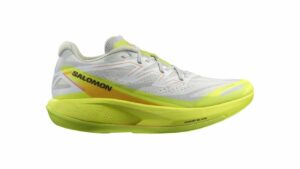What’s wrong with elitism?
Blogger Rory Gilfillan wants Canadian marathons take a page out of Boston and New York's books.
As a seasoned marathon runner, Darl Sutherland knew what urine running down his leg felt like in the last 10K of the marathon. Like chafed nipples, it was just another part of the scene that people didn’t talk about. He knew from experience that a decision to stop, even briefly, anywhere after the 30K mark risked not being able to start again. And with the $200 entry fee, the expensive hotel in New Jersey, the price of gas and the weeks of hard training, he sure as hell wasn’t planning on stopping.
This sensation, however, was markedly different. This time it wasn’t his own urine and the race hadn’t even started yet.
Packed so tightly that runners could not bend over to tie their own shoes, Sutherland was peed on at the start of the 2007 New York City Marathon — one of several hazards and indignities that athletes faced on that grey November morning. Pee rained down from runners far behind him, who were still on top of a bridge directly above, and discarded warm-up clothes fluttered gently in the breeze before finally touching down amid the throngs that came to race that day.
It wasn’t supposed to be this way and to those who had hit the 2:50 qualifying standard — a full 20 minutes faster than Boston that year — and had shelled out the exorbitant fee that is part of the marathon scene, it was a realization that life outside the elite coral didn’t just mean a higher runner to portapotty ratio, but also meant being held hostage to a mass movement that didn’t view this marathon as a race. Most saw it as a leisurely four to seven hour tour of the five boroughs of Gotham.
There are three ways to get to the New York Marathon. Aspiring runners can raise a preordained amount of money towards a sanctioned charity, enter a lottery, or get there the old fashioned way by working hard and running fast.
Most people opt for the lottery.
The system works well in theory but breaks down the moment that the 38,000 runners, fight their way to the front of the pack. Throw in an indifferently marshalled corral system and it’s easy to understand why even the most conservative race day aspirations evaporate before the starting canon fires.
When pioneering female marathon runner Katherine Switzer once remarked that if you ever wanted your faith restored in humanity, go watch a marathon, it was clear that she either hadn’t run a significant race in the last 25 years or was blessed with the kind of elite status that would have positioned her safely on the on the other side of the velvet ropes flanked by pacers.
Following high school, generations of Canadians may never kick a soccer ball, sink a basket, or tie on a pair of running shoes ever again. Those that do, after years of surfing the couch, will naturally equate running a 5K with scaling K2. Not only will they expect to take their place at the front, but they also believe that race numbers ought to be distributed on a first-come-first-serve basis.
In Canada, even the most significant races hold less appeal than either Boston or New York. Consequently racing in Canada isn’t fraught with the same kind of frustration, as long as athletes are internet savvy, apply for the race at least six months in advance and, on failure to get a race bib legitimately, willing to make a foray into the black market.
Canadians, with the singular exception that is hockey, are uncomfortable with the idea of elitism in physical endeavors. It’s no accident that everyone is awarded a medal for finishing and as long as the top finishers are rewarded, distributing medals that have already been paid for by participants, though absurd, isn’t inherently wrong.
However, it’s time to reconsider how races are filled particularly for Canadian marquee events like the Otttawa Race Weekend marathon/half-marathon and the Around the Bay 30K.
This past year the Boston Athletics Association not only made it harder to qualify but also based a portion of its field not on who was quickest to fill out the online registration but who was the quickest on the race course.
It’s a system that the Ottawa and the Around the Bay organizers ought to consider.


